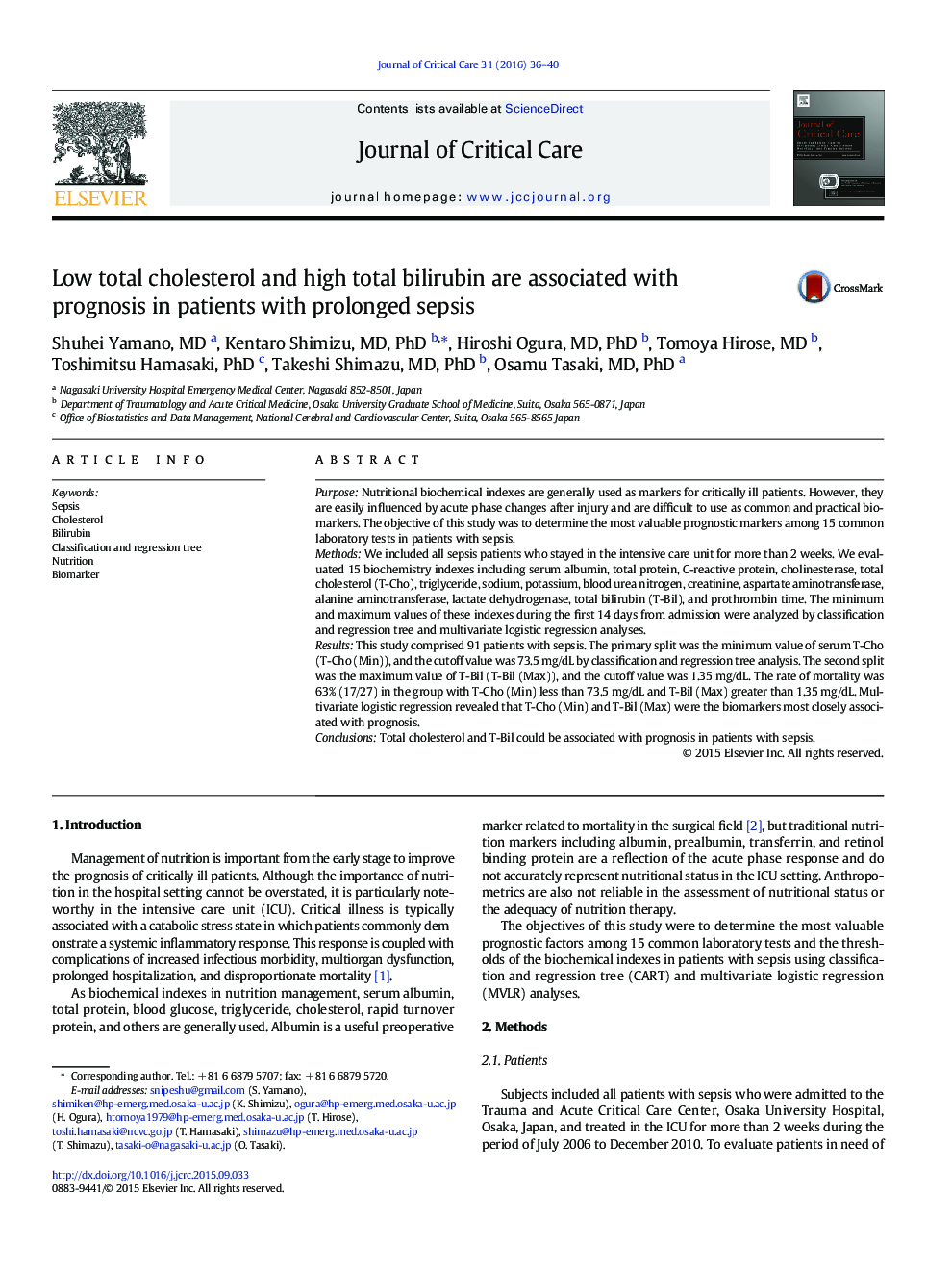| Article ID | Journal | Published Year | Pages | File Type |
|---|---|---|---|---|
| 5885019 | Journal of Critical Care | 2016 | 5 Pages |
PurposeNutritional biochemical indexes are generally used as markers for critically ill patients. However, they are easily influenced by acute phase changes after injury and are difficult to use as common and practical biomarkers. The objective of this study was to determine the most valuable prognostic markers among 15 common laboratory tests in patients with sepsis.MethodsWe included all sepsis patients who stayed in the intensive care unit for more than 2 weeks. We evaluated 15 biochemistry indexes including serum albumin, total protein, C-reactive protein, cholinesterase, total cholesterol (T-Cho), triglyceride, sodium, potassium, blood urea nitrogen, creatinine, aspartate aminotransferase, alanine aminotransferase, lactate dehydrogenase, total bilirubin (T-Bil), and prothrombin time. The minimum and maximum values of these indexes during the first 14 days from admission were analyzed by classification and regression tree and multivariate logistic regression analyses.ResultsThis study comprised 91 patients with sepsis. The primary split was the minimum value of serum T-Cho (T-Cho (Min)), and the cutoff value was 73.5 mg/dL by classification and regression tree analysis. The second split was the maximum value of T-Bil (T-Bil (Max)), and the cutoff value was 1.35 mg/dL. The rate of mortality was 63% (17/27) in the group with T-Cho (Min) less than 73.5 mg/dL and T-Bil (Max) greater than 1.35 mg/dL. Multivariate logistic regression revealed that T-Cho (Min) and T-Bil (Max) were the biomarkers most closely associated with prognosis.ConclusionsTotal cholesterol and T-Bil could be associated with prognosis in patients with sepsis.
